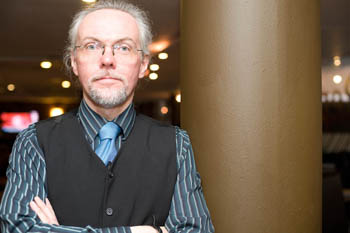Chair in Nuclear Engineering and Decommissioning

Lancaster University and the Lloyd’s Register Educational Trust announce appointment of new Chair in Nuclear Engineering and Decommissioning
Professor Colin Boxall has been appointed to The Lloyd’s Register Educational Trust (LRET) Chair in Nuclear Engineering and Decommissioning at Lancaster University.
Previously head of the John Tyndall Nuclear Research Institute and Director of Research at UCLan, Professor Boxall, who specialises in physical chemistry, will support the future needs of decommissioning concentrating on the risks associated with contamination and high hazard legacies found at a wide range of nuclear licensed sites across the UK – some of which constitute the biggest sites of diverse risk management in the world.
Lancaster University and the LRET, an independent charity working to achieve advances in transportation, science, engineering and technology research worldwide, announced the creation of this nuclear-specialist university Chair days after the UK Government announced it was giving the go ahead for nuclear power to form part of the UK’s future energy mix.
This appointment marks the UK’s first response to the regulatory skills gap, currently present in the nuclear industry.
Professor Malcolm Joyce, head of Lancaster University’s Engineering Department said:
“There are some fascinating and significant research challenges faced by the global renaissance in nuclear power and Lancaster is expanding its internationally-leading expert team in nuclear engineering and decommissioning to appeal to these. The appointment of Professor Boxall is a key achievement in this process that enables Lancaster to combine the essential ingredients of Engineering and Physical Chemistry that has been made possible through the profound generosity of the LRET.“
The LRET is providing £755,000 in funding for the chair, for a period of five years.
Director, Michael Franklin said that the new Chair at LancasterUniversity is a major step forward in providing the skills that the UK’s nuclear industry will need in the future.
“Professor Boxall’s appointment will see an improved focus on skills in the nuclear industry, providing additional skilled workers in the nuclear industry and will go a long way to ensuring safety across future nuclear programmes in the UK. We agree with the Government that safety in the nuclear industry is a priority and can be managed so that the risks are acceptably low. Lancaster University has a proven track record in undergraduate and post graduate education in this field, a broad research portfolio across a number of disciplines as well as strong links with the nuclear industry. We are very pleased to support this important post which will help make a significant contribution to the industry’s future needs.”
Lancaster University has strong research expertise in nuclear safety and specialises in education surrounding nuclear engineering, making it a suitable partner for the LRET and providing a clear way to ensure the work force of the nuclear industry in the years to come.
Professor Boxall has worked in research teams with interests in electrochemical engineering and materials science since 1983 (including 9 years at Imperial College). Since 1997, he has attracted £1.5M of research funding from EPSRC, EU and industry and has written over 90 refereed publications, invited book chapters and confidential reports. He is an EPSRC College Member and Chair of the EPSRC Photocatalysis Network’s working party on Photocatalysis and the Nuclear Industry. He has given invited lectures to the EPSRC Actinide Chemistry conference, 2003 and the 10th Asian Conference on Solid State Ionics, Sri Lanka, 2006.
The Lloyd’s Register Educational Trust was established in October 2004. Its principal purpose is to support advances in transportation, science, engineering and technology education, training and research worldwide for the benefit of all. It also funds work that enhances the safety of life and property at sea, on land and in the air.
